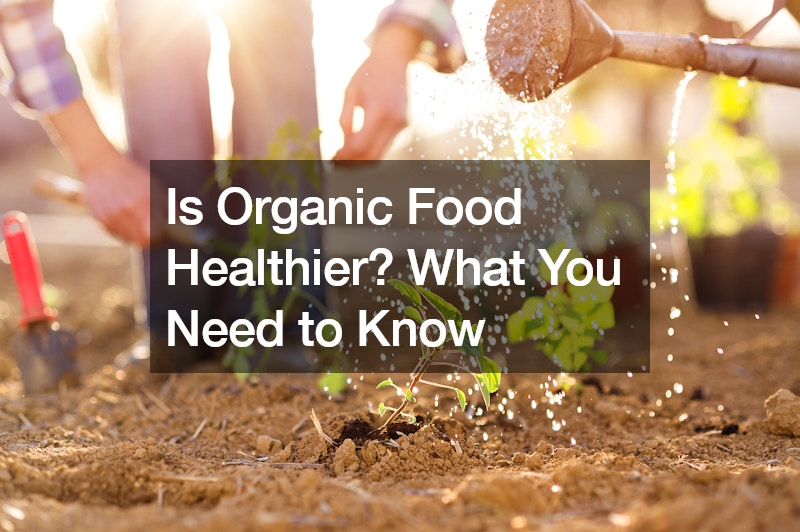In the quest for healthier eating habits, many of us turn to organic food as a potential solution. But what exactly does “organic” mean, and is it really healthier for us? Let’s delve into the topic and uncover the facts behind organic food.
Understanding Organic Food
Organic food is produced following strict standards of organic farming. These standards vary worldwide but generally entail the production of food without the use of synthetic pesticides and fertilizers. Moreover, animal products can only be labeled as organic if the animals are not administered antibiotics or hormones during their development.
However, it’s important to note that organic farming does permit the use of certain pesticides derived from natural sources. This approach aims to minimize exposure to synthetic chemicals while still ensuring adequate crop protection. Organic farmers may also opt for organic non GMO seeds, which are free from genetic modifications.
Is Organic Food Healthier?
The debate surrounding the health benefits of organic food is ongoing and multifaceted. While some argue that organic food offers superior nutrition and reduces exposure to harmful chemicals, others contend that the evidence is inconclusive.
One study, published in the British Journal of Nutrition, suggests that organic foods may contain higher levels of antioxidants compared to conventionally grown counterparts. These antioxidants play a crucial role in combating oxidative stress and promoting overall health. Additionally, organic produce tends to have lower levels of pesticides, including toxic metals like cadmium, which have been linked to various health issues such as Alzheimer’s disease and hormone disruption.
However, conflicting opinions exist within the scientific community. A Stanford review from 2012 concluded that organic foods are not necessarily more nutritious than conventionally grown foods. This discrepancy underscores the complexity of the issue and the need for further research.
Considerations for Organic Eating
When deciding whether to incorporate organic food into your diet, several factors should be taken into account. Firstly, organic animal products may be of greater importance than organic produce due to the prolonged exposure to antibiotics and hormones in livestock farming. Prioritizing the purchase of organic meat, dairy, and eggs can help minimize these health risks.
Cost is another significant consideration for many consumers. While organic food is often perceived as healthier, it can also come with a higher price tag. To make organic eating more affordable, consider purchasing frozen organic foods, which are often more budget-friendly than fresh options.
Additionally, familiarizing yourself with the “clean 15” and “dirty dozen” lists can help you make informed choices when shopping for produce. These lists highlight fruits and vegetables with the highest and lowest pesticide residues, respectively. By prioritizing organic options for items on the “dirty dozen” list, you can minimize pesticide exposure without breaking the bank.
Environmental Impact of Organic Farming
Organic farming practices prioritize environmental sustainability by minimizing the use of synthetic pesticides and fertilizers, which can harm soil health and ecosystems. Instead, organic farmers employ methods such as crop rotation, composting, and biological pest control to promote soil fertility and biodiversity. By avoiding chemical inputs, organic farming reduces pollution and helps mitigate climate change by sequestering carbon in the soil. Additionally, organic farms often serve as habitats for beneficial insects, birds, and other wildlife, contributing to ecosystem resilience. Overall, supporting organic agriculture can lead to healthier ecosystems and a more sustainable food system.
Regulation and Certification of Organic Food
Organic food production is regulated by government agencies such as the USDA (United States Department of Agriculture) and third-party organizations like the Soil Association. These entities establish and enforce strict standards for organic farming practices, including soil management, pest control, and livestock welfare. Organic certification ensures that foods labeled as “organic” meet these rigorous criteria and are free from synthetic chemicals, genetically modified organisms (GMOs), and other prohibited substances. Consumers can look for official organic certification logos on product labels to ensure they are purchasing genuine organic foods that adhere to established standards.
Conclusion
In conclusion, the question of whether organic food is healthier is nuanced and multifaceted. While organic produce may offer certain benefits such as higher antioxidant levels and reduced pesticide exposure, the scientific evidence remains inconclusive. Ultimately, the decision to incorporate organic food into your diet should be based on personal preferences, health goals, and budget constraints.
Whether you choose to prioritize organic options or opt for conventionally grown foods, maintaining a balanced diet rich in fruits, vegetables, whole grains, and lean proteins is key to promoting overall health and well-being. By making informed choices and considering the potential benefits of organic food, you can take positive steps towards a healthier lifestyle.
.



